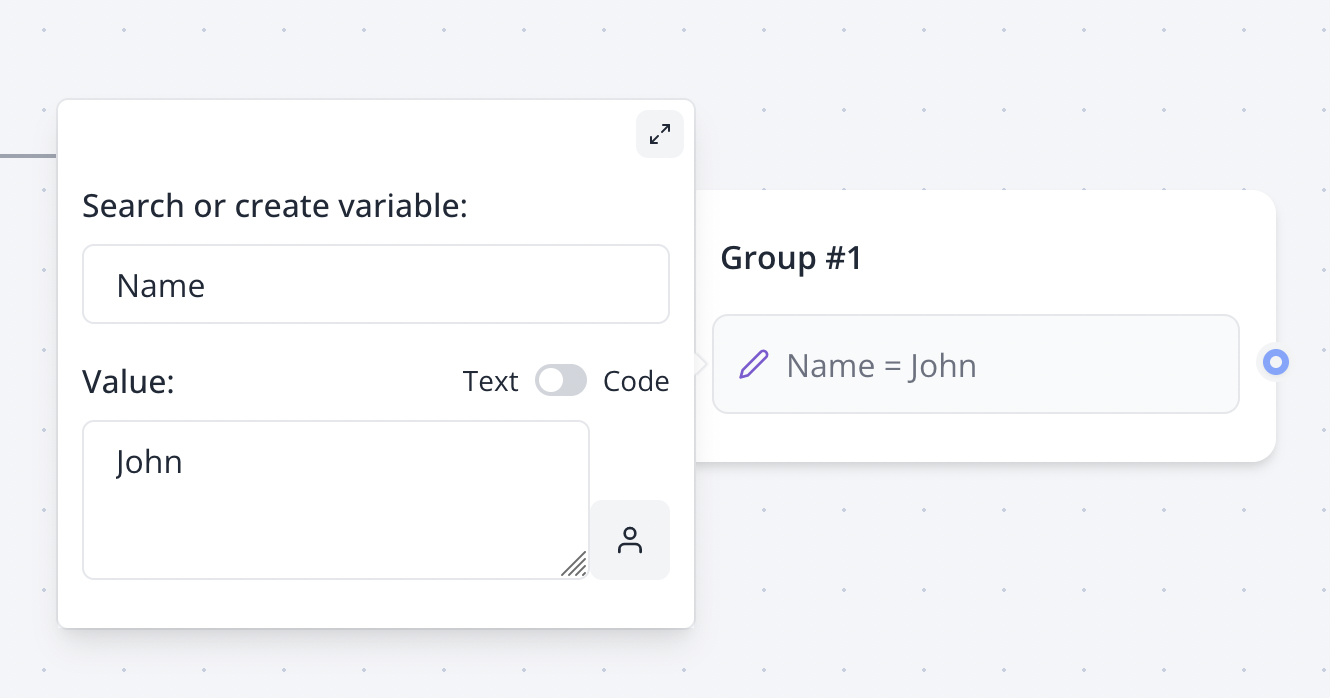Set variable
The "Set variable" block allows you to set a particular value to a variable.

This value can be any kind of plain text but also Javascript code.
Expressions with existing variables
It means you can apply operations on existing variables.
Add a value to your variable:
{{Score}} + 5
Compute a sum of variables:
{{Score}} + {{Answer}}
Multiply variables together:
{{Score}} * {{Multiplier}}
Compute a percentage:
{{Score}} * 100 / {{Max Score}}
Extract the first name from a full name:
{{Full name}}.split(' ')[0]
Transform existing variable to upper case or lower case:
{{Name}}.toUpperCase()
{{Name}}.toLowerCase()
Code
The code value should be written Javascript. It will read the returned value of the code and set it to your variable.
const name = 'John' + 'Smith'
return name
If you don't provide the return keyword then it will be automatically prepended to the beginning of your code.
'John' + 'Smith'
is the same as
return 'John' + 'Smith'
Variables in script are not parsed, they are evaluated. So it should be treated as if it were real Javascript variables.
So, if you write "{{My variable}}", it will parse the variable ID (something like vclfqgqkdf000008mh3r6xakty). You need to remove the double quotes to properly get the variable content value.
For example,
- ❌
"{{URL base}}/path"=>vclfqgqkdf000008mh3r6xakty/path - ✅
{{URL base}} + '/path'=>https://domain.com/path - ✅
`${{{URL base}}}/path`=>https://domain.com/path
Current Date
You can create a Submitted at (or any other name) variable using this code:
new Date().toISOString()
It will set the variable to the current date and time.
Random ID
Or a random ID:
Math.round(Math.random() * 1000000)
Keep in mind that the code is executed on the server. So you don't have access to browser variables such as window or document.
The code can also be multi-line. The Set variable block will get the value following the return statement.